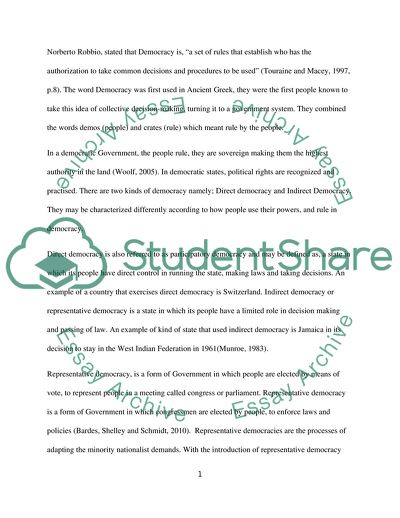Cite this document
(What is Democratic About 'Representative Democracies' Discuss With Reference to Elite Theory Essay Example | Topics and Well Written Essays - 2000 words, n.d.)
What is Democratic About 'Representative Democracies' Discuss With Reference to Elite Theory Essay Example | Topics and Well Written Essays - 2000 words. https://studentshare.org/history/1785716-what-is-democratic-about-representative-democracies-discuss-with-reference-to-elite-theory
What is Democratic About 'Representative Democracies' Discuss With Reference to Elite Theory Essay Example | Topics and Well Written Essays - 2000 words. https://studentshare.org/history/1785716-what-is-democratic-about-representative-democracies-discuss-with-reference-to-elite-theory
(What Is Democratic About 'Representative Democracies' Discuss With Reference to Elite Theory Essay Example | Topics and Well Written Essays - 2000 Words)
What Is Democratic About 'Representative Democracies' Discuss With Reference to Elite Theory Essay Example | Topics and Well Written Essays - 2000 Words. https://studentshare.org/history/1785716-what-is-democratic-about-representative-democracies-discuss-with-reference-to-elite-theory.
What Is Democratic About 'Representative Democracies' Discuss With Reference to Elite Theory Essay Example | Topics and Well Written Essays - 2000 Words. https://studentshare.org/history/1785716-what-is-democratic-about-representative-democracies-discuss-with-reference-to-elite-theory.
“What Is Democratic About 'Representative Democracies' Discuss With Reference to Elite Theory Essay Example | Topics and Well Written Essays - 2000 Words”. https://studentshare.org/history/1785716-what-is-democratic-about-representative-democracies-discuss-with-reference-to-elite-theory.


